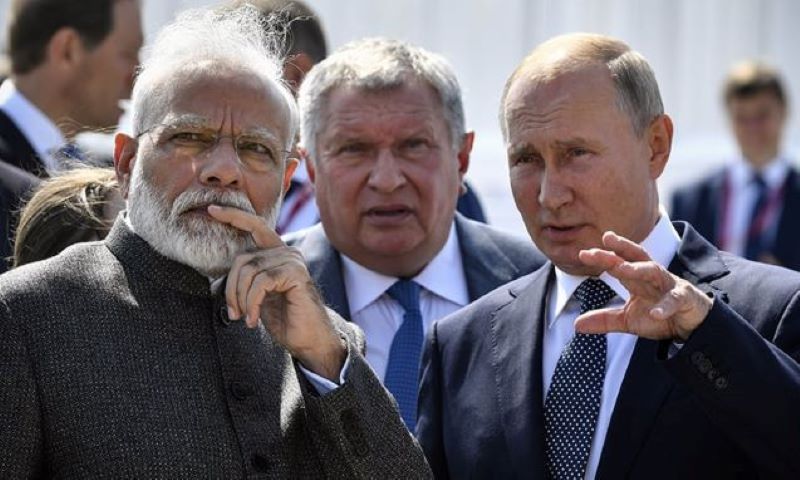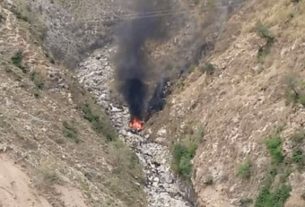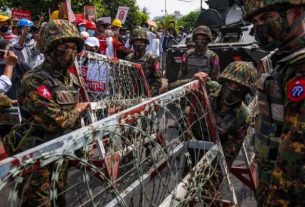KAZAN, Russia — World leaders, including China’s Xi Jinping and India’s Narendra Modi, convened in the Russian city of Kazan on Tuesday for a pivotal summit of the BRICS bloc, comprising developing economies. The Kremlin aims to position this gathering as a counterweight to Western dominance in global affairs.
For Russian President Vladimir Putin, the three-day summit represents a strategic opportunity to demonstrate the ineffectiveness of U.S.-led initiatives aimed at isolating Russia in the wake of its actions in Ukraine. Kremlin foreign affairs adviser Yuri Ushakov described the event as “the largest foreign policy gathering ever hosted” by Russia, highlighting the participation of 36 countries, with over 20 represented by heads of state.
Initially formed by Brazil, Russia, India, China, and South Africa, the BRICS alliance has seen rapid expansion, now welcoming countries such as Iran, Egypt, Ethiopia, the United Arab Emirates, and Saudi Arabia. Turkey, Azerbaijan, and Malaysia have formally applied for membership, while several others have expressed interest.
Observers interpret the BRICS summit as part of the Kremlin’s broader strategy to underscore support from the Global South amid escalating tensions with Western nations, thereby seeking to bolster economic and financial cooperation. Proposed initiatives include establishing a new payment system intended to serve as an alternative to the global banking messaging network SWIFT, which could facilitate trade for Moscow while circumventing Western sanctions.
During the summit, Putin is expected to engage in around 20 bilateral meetings, having already met with Modi and South African President Cyril Ramaphosa, with discussions with Xi planned for later in the day. The gathering highlights the burgeoning partnership between Xi and Putin, who declared a “no-limits” partnership shortly before Russia’s invasion of Ukraine in 2022. The two leaders have met at least twice this year, in Beijing in May and during a Shanghai Cooperation Organization summit in Kazakhstan in July.
Russia’s relationship with India has also strengthened, as New Delhi views Moscow as a longstanding ally dating back to the Cold War, despite Russia’s close ties with India’s principal rival, China. While Western allies urge India to play a more active role in persuading Russia to cease its military actions in Ukraine, Modi has refrained from openly condemning Russia, instead advocating for a peaceful resolution.
“We believe that problems should be resolved peacefully, and we fully support the quickest establishment of peace and stability,” Modi stated, following his last visit to Russia in July.
Putin has praised the “privileged strategic partnership” between Russia and India. In discussions with Ramaphosa, he highlighted their mutual aspiration for a “fair, multi-polar global order” and specifically referenced collaborative efforts among BRICS nations to develop a “new independent payment system.”
On Thursday, Putin is also set to meet with United Nations Secretary-General António Guterres, marking Guterres’s first visit to Russia in over two years. The UN chief has consistently condemned Russia’s actions in Ukraine, adding another layer of complexity to the ongoing geopolitical landscape.





